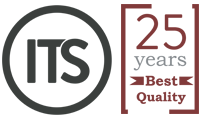Online Spanish Courses
Learning Spanish online with ITS guarantees you:
- Learning in a flexible and fast way, organizing your own time schedule (weekends included).
- Realistic guidelines regarding the time that you need to achieve your goals.
- Practicing Spanish at home, on the move while you travel, or in your spare time…. It couldn’t be easier!
- The courses will be online through videoconferences, talking to your teacher and classmates, as you would in a class. Previously a timetable will be set with each participant.
- You will have access to our Platform that includes the grammatical contents of each of the courses and provides you with exercises, vocabulary, songs, games and much more.
- At the end of your course, you have the possibility to measure your progress through a post course test that we offer you.


How much Spanish will I be able to learn?
Starting from scratch
If you start with no previous knowledge, i.e. as a beginner, and you follow a general online Spanish course (10 hours per week) , you will attain a basic level in one month and an advanced level in 9 months or one year.
The following gives you an idea of the average duration of learning Spanish as a foreign language by levels, starting at the beginning:
A1: 4 weeks
A2: 8 weeks
B1: 12 weeks
B2: 20 weeks
C1: 28 weeks
C2: 36 weeks
Attaining Spanish levels
Starting from level A1 (Introduction) and continuing progressively until C2 (Advanced): 36 weeks or 9 months
If your level is:
Introduction A1 - You will be able to understand easy texts and participate in basic conversations. You can introduce yourself, explain where you live, who your family members are, or go shopping for clothes or food without having much trouble. You know how to express your preferences, to talk about the weather, a trip, or even the past. If people do not speak too fast, you can understand everything they say.
At the Elemental A2 level - You can tackle everyday situations during your stay in Spain. It is then when you learn how to talk in the past or future tense; you can understand the newspapers or go to a chemist’s. Your level is that of survival +.
At the Intermediate B1 level - You will improve your knowledge of grammar and vocabulary and will be able to speak Spanish much more fluently. You will have a vocabulary of around 2500 words. You will be able to talk about your experiences, your tastes and your wishes, or watch a film/movie in Spanish. You will understand almost everything.
At the Advanced B2 level - You will have a wide knowledge of the language and you will feel much better talking to your Spanish friends about customs and habits. You will be able to make complicated sentences, using the subjunctive tense correctly. You can express your wishes and feelings and you learn how to use the verb TO BE (“ser and estar”) correctly. You will understand almost everyone even if they speak fast.
At the highest levels, Superior C1 and Advanced C2 - We work on the grammar and vocabulary so you can speak Spanish fluently with accuracy and spontaneity in any situation. We emphasize the written language. You also learn expressions from Latin America. The Spanish language has no secrets for you!


Common European Frame of Reference for Languages (CEFRL)
The teaching of foreign languages is organised on six levels according to the Common European Frame of Reference for Languages (CEFRL)
What is the Common European Frame of Reference for Languages (CEFRL)?
In the “CEFRL” we can see there are six levels: A1 and A2 (basic); B1 and B2 (independent user); C1 and C2 indicate a perfect command of the language.
The CEFRL defines the criteria in order to measure the knowledge of all languages in the European Union. It will therefore be our link when we have to establish the objectives for each student. It is interesting to be familiar with the levels according to their linguistic and grammar contents.
These are the following ones:
A1. Access Level,
A2. Platform Level
B1. Intermediate
B2. Upper intermediate
C1. Effective Operational Proficiency
C2. Advanced
What are the technical abilities and skills assessed?
The CEFRL establishes a series of criteria that are valid for all European languages as far as teaching, learning and evaluating languages is concerned. For more information about MCER click here
Certificate
At the end of your course, you have the possibility to measure your progress through a post course test that we offer you.
ITS will award you with a course certificate, even if you decide not to sit for the final exam. The certificate is a proof that you have reached the desired level, it includes the total number of hours spent on the course, the topics studied and the start and final dates of the course.
We will send you your certificate by postal mail, to the address you will have communicated to us.
Check your certificate!


Starting from scratch
If you start with no previous knowledge, i.e. as a beginner, and you follow a general online Spanish course (10 hours per week) , you will attain a basic level in one month and an advanced level in 9 months or one year.
The following gives you an idea of the average duration of learning Spanish as a foreign language by levels, starting at the beginning:
A1: 4 weeks
A2: 8 weeks
B1: 12 weeks
B2: 20 weeks
C1: 28 weeks
C2: 36 weeks
Attaining Spanish levels
Starting from level A1 (Introduction) and continuing progressively until C2 (Advanced): 36 weeks or 9 months.
If your level is: Introduction A1
You will be able to understand easy texts and participate in basic conversations. You can introduce yourself, explain where you live, who your family members are, or go shopping for clothes or food without having much trouble. You know how to express your preferences, to talk about the weather, a trip, or even the past. If people do not speak too fast, you can understand everything they say.
At the Elemental A2 level
You can tackle everyday situations during your stay in Spain. It is then when you learn how to talk in the past or future tense; you can understand the newspapers or go to a chemist’s. Your level is that of survival +.
At the Intermediate B1 level
You will improve your knowledge of grammar and vocabulary and will be able to speak Spanish much more fluently. You will have a vocabulary of around 2500 words. You will be able to talk about your experiences, your tastes and your wishes, or watch a film/movie in Spanish. You will understand almost everything.
At the Advanced B2 level
You will have a wide knowledge of the language and you will feel much better talking to your Spanish friends about customs and habits. You will be able to make complicated sentences, using the subjunctive tense correctly. You can express your wishes and feelings and you learn how to use the verb TO BE (“ser and estar”) correctly. You will understand almost everyone even if they speak fast.
At the highest levels, Superior C1 and Advanced C2
We work on the grammar and vocabulary so you can speak Spanish fluently with accuracy and spontaneity in any situation. We emphasize the written language. You also learn expressions from Latin America. The Spanish language has no secrets for you!
Common European Frame of Reference for Languages (CEFRL)
The teaching of foreign languages is organised on six levels according to the Common European Frame of Reference for Languages (CEFRL)
What is the Common European Frame of Reference for Languages (CEFRL)?
In the “CEFRL” we can see there are six levels: A1 and A2 (basic); B1 and B2 (independent user); C1 and C2 indicate a perfect command of the language.
The CEFRL defines the criteria in order to measure the knowledge of all languages in the European Union. It will therefore be our link when we have to establish the objectives for each student. It is interesting to be familiar with the levels according to their linguistic and grammar contents.
These are the following ones:
A1. Access Level
A2. Platform Level
B1. Intermediate
B2. Upper intermediate
C1. Effective Operational Proficiency
C2. Advanced
What are the technical abilities and skills assessed?
The CEFRL establishes a series of criteria that are valid for all European languages as far as teaching, learning and evaluating languages is concerned.
For more information about MCER click here: https://cvc.cervantes.es/ensenanza/biblioteca_ele/marco/cap_03_02.htm
What about a “virtual coffee” as we used to have it in Spain, and we discuss all details of your course?
You can ask any question to your teacher and check your skype, meet or zoom connection.
Please, send us your name and e-mail address and one of our teachers will get back to you to schedule a call for free.
They will explain you how we work, how the course will be organized, which material we use, how your skills will be developed during the tuition hours….
We look forward to hearing from you soon!


